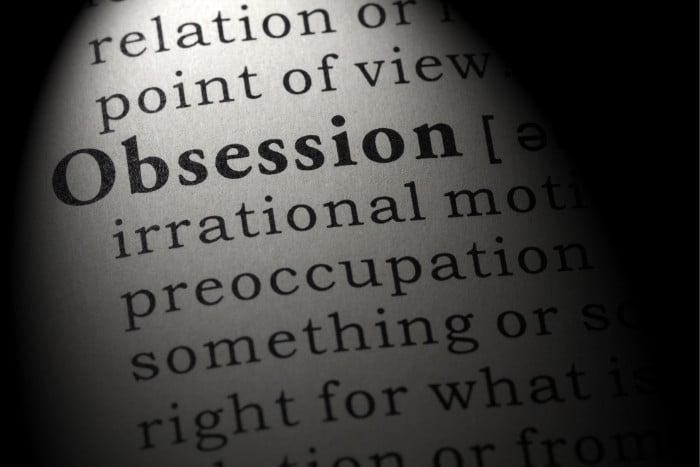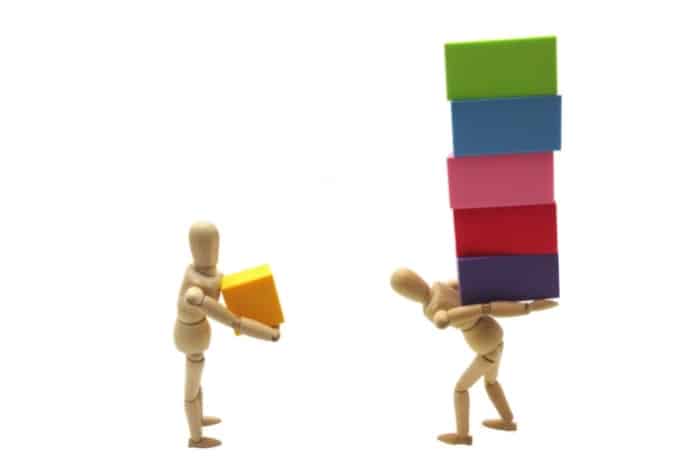The butterflies fluttering in your stomach, a colorful world, and happy skies – how you wish they could stay forever. But like everything else, love is dynamic.
Sharing love with some comes with many expectations, hopes, and dreams. When these are shattered repeatedly, they can quickly turn into hate. Whether it is a partner turning abusive, or simply negligent of you, you can end up hating them for taking away the romance and joy you desired.
There are often a common set of reasons why many people begin to hate those they once deeply loved. Understanding these reasons can help us avoid conflicts, sustain relationships, and nurture love.
Love Turning Into Hate: Situations and Reasons
This usually happens when either (or both) of you are:
1. Heavily Obsessed
Everyone loves to feel noticed and to hold their partner’s attention throughout the day. Yet, we also tend to get uneasy when someone becomes clingy and obsessed.
When one person in the relationship loses their individuality and is constantly bothered by where their partner is, what they’re doing, who they’re with and cannot let them out of their sight – it can quickly turn into hatred.
It makes being in a relationship feel like being caged. When the person feeling locked in tries to escape, fight, and get away – the person obsessed can also begin hating them.
However, they may end up becoming plagued by their hatred just the same as with their love – resulting in a vicious, toxic cycle.

2. Taking Ownership of Your Partner
We often tend to romanticize certain aspects of possessiveness – but acting like you own your partner will always breed hatred eventually.
Being too controlling, tracking every step your partner takes, and never allowing them to have their own opinions or preferences always becomes a cause of traumatic relationships.
Imagine not having the freedom to simply be your own person. It is something all of us need, and when taken away from us, it can get extremely aggravating for any human.
There is a subtle difference between expecting compromises or mutually decided changes from your partner and being completely “owned” by someone.
Your partner should never have to force a decision or action upon you, make you feel guilty, or choose for you.
3. Becoming Too Critical
Whether it’s parents or partners, nearly all of us have witnessed the annoyance that comes with extreme, unnecessary, and unsolicited critique.
Now, imagine listening to someone who critiques you 24X7 over the most trivial things under the sun. Anyone would go wild.
From the way you dress to the way you eat, you will always end up loathing a partner who is impossible to please- even if you try all your life.
Constantly being surrounded by someone who has a negative vibe and seems to like nothing about you can quickly turn into hatred for that person.
Love often requires active reciprocation, acknowledgment, and appreciation. Without these three elements, things can go downhill pretty quickly.
4. Feeling Superior
If a partner starts thinking or feeling in a way that implies they are “better” than their significant other as a person, their partner’s affection will turn into one of hatred and regret.
No one appreciates being treated by their partner as if they don’t matter.
Suppose you or your partner start overlooking each other’s worth, put yourself on a pedestal, and do not acknowledge each other’s contributions.
In that case, the relationship can quickly turn from heaven to hell. At the end of the day, healthy relationships are about equitably sharing responsibilities and treating each other fairly.
It’s about your “better half”; not a subordinate but an equal.
5. Pulling Each Other Back
A major reason why relationships grow toxic is when they hinder growth.
If your partner is constantly hampering you, stopping you from reaching your ambitions, or discouraging learning, you will start despising them slowly.
There are justifications that someone who is pulling their partner back makes.
They might think they are only protecting the relationship by ensuring their partner doesn’t get hurt or expecting the bare minimum. Ultimately, these are just excuses.
It could be them, it could be you, or it could be the both of you trying to run a one-legged race. Either way, it will lead to your love turning into hatred gradually.
6. Wronging Your Partner
The worst thing anyone could do to their partner is to be disloyal to them. Disloyalty is not just about indulging in secretive erotic or romantic activities, but those counts as well.
These can include stealing from them, lying to them, betraying them, or going behind their back to indulge in any activity they disapprove of.
Hating someone you loved because they cheated on you is a narrative we have seen time and again – in stories and real life. But the rest may often slide away.
Whatever way you lie to your partner or hurt them will make them hate you. Certain actions can not be forgotten and will leave a permanent scar.
This is why it is essential to know what is and is not acceptable for your partner and act accordingly in mutual understanding to nurture your relationship.

7. Turning Abusive
No faster way to turn love into hate than by turning abusive. Sudden physical violence can stun a partner, leaving their relationship in question.
On the other hand, emotional abuse slowly penetrates someone’s life but will always come to the surface later on.
Abuse leaves behind trauma that is harder to heal; thus, returning from it is also exceptionally difficult.
A single act of physical abuse might only make your partner hate you for a little while- if they see improvement and regret on your side.
However, the hatred that comes with the realization of prolonged, intentional abuse is much deeper. If either of you turn abusive, there is only the path of hatred left to tread.
8. Never Challenging Each Other
Sometimes, you don’t need your relationship to get ugly to loathe your partner. It can also come from a space where you feel stuck.
Relationships may get boring very quickly – there’s nothing new to experience. And what keeps the romance alive and the relationship dynamic is challenging each other in healthy ways.
Having a partner that challenges you helps you grow and build – it also gives room to changes and new cycles of life with time.
However, if neither of you does anything to aid in this growth, you can quickly start hating each other because of a feeling of stagnation in the relationship.
9. Excluding Friends and Family
No matter how much you love someone, they cannot be your only social contact. See them all day, every day, for months – and you will quickly start hating them.
A common mistake many make during the early stages of their relationship is cutting out friends and family.
The honeymoon period fades away quickly, and in no time, you end up realizing how little you have left. This can lead to building resentment without realizing it was your fault.
Spending too much time with your partner and not enough with others can also depreciate your own identity and overall lifestyle.
10. Playing the Blame-Game
The worst thing you can do in an argument is play the blame game.
Once you fall into the pit of blaming your partner for every little thing and not owning up to it, the pit only gets deeper and darker. Your partner starts losing hope in you or the relationship.
No one wants to be blamed for everything. It has to be a fair share. If one of you does not treat the circumstance justly, hatred follows quickly.
11. Guilt-Shaming
Guilt-shaming can have a lot of faces – but most commonly, it can include manipulating words, actions, and expressions to make your partner feel at fault or as if they owe you better.
While guilt-shaming may work once, twice, or a few times, it is never permanent.
The person being guilt shamed soon gets exhausted, realizes the toxic consequences of the act, and starts hating the culprit for leaving such a deep mark on their self-esteem and mental health.
Guilt-shaming, because of its mental consequences, can often never be taken back when done repeatedly.
12. Unfairly Sharing Responsibilities
Relationships are best when they are equitable.
Life is hard, and a partner is there to make it easier, not worse. In short, one person taking complete responsibility for an entire adult, with or without the rest of the family, is extremely hard.
As a well-functioning individual, you or your partner expect the other person to share responsibilities fairly.
But when one person does nothing but drink, chill on the couch, or do nothing on their part to sustain their livelihood, the other person will slowly become furious and detest their partner for “ruining their life.”

13. Constantly Disrespecting Them
Respect is often rated above love when discussing what is necessary to maintain stable, healthy, and long-term relationships.
When one of you begins constantly disrespecting the other person, belittling them, and making them feel like they don’t mean anything to you, they may strike back similarly.
Hatred with disrespect can soon start running both ways. The negative consequences of disrespecting your partner only get worse when done publicly or in a social setting.
It not only ends up hurting their emotions but also their egos – which is never a good thing.
14. Hiding Your Emotions
An emotional bond is essential for taking love forward with time and not letting it fade away.
Hiding your emotions can make your partner and you slowly feel distant, which can soon turn into finding their company annoying and then, in no time – into hatred.
It may or may not run to that extreme but should be avoided nonetheless. Actively hiding emotions can sometimes be a personality issue – some people just become cold towards others in general.
But it can also be specific to you. Losing your partner’s trust or facing a traumatic circumstance can make them pull away from you and should be dealt with care and if needed, professional help.
15. Pretending to be Someone Else
Imagine being in love with a person that does not actually exist – and only finding that out later. The same face, body, and name, but an entirely different person.
It is common for some people to pretend to be someone else during the initial phases of their relationship to please and woo a partner.
However, such lies cannot last for much longer. No one can pretend forever. Once exposed, it can bring feelings of hatred, hurt, and betrayal into the picture.
It can be healed or dealt with, but there better be a great enough explanation for it.
How To Prevent Love From Turning Into Hate?
You can prevent love from turning into hate simply by paying more attention to factors that bring it forward.
Looking at situations analytically, acting out with a calm mind, and working alongside your partner to fight problems will help maintain your relationship.
On the other hand, making your partner feel special every once in a while will help you grow your love. Here are six simple relationship habits that help you avoid love turning to hate:
1. Communicate
Most relationship problems and hatred come from misunderstandings or a consistent lack of communication. Both your and your partner’s feelings are equally valid.
Both of you would only be able to act from a space of empathy when you allow the other person to step into your shoes and see how you feel.
Communicating your feelings clearly, things that bother you, things that you love – or even the fact that you’ve begun to feel distant and wish to fix it can be your turnaround point.
For communication to be successful, ensure to remain open-minded, stay calm, and speak gently.
2. Be Honest
A sub-element of communication, being honest, needs its own emphasis. You might try talking while hiding your true emotions, putting on a facade, or pretending it’s not that big of a deal.
All of these can be the cause of failure in your attempts to sustain love. When you are honest at every step, you strengthen your partner’s faith in you.
They are gradually likely to reciprocate similarly, making them feel significant. Every time you show your partner’s worth, you enhance their love for you.
3. See A Counselor
If issues between the two of you have gone too far, seeing a therapist might be your best bet for a brief while.
But counseling demands work at every step of the way and should only be taken as long as you can afford it.
Couples counseling will help you and your partner address issues, work on them and prioritize each other at least once weekly.
This would not allow negative emotions to expand or surface and maintain a healthy relationship, If you cannot seek a professional, taking out a day or two each week to talk, figure out, and work on your relationship is also a great way to keep going.

4. Apologize (And Mean It)
Every time you do something wrong, apologize. Sometimes, when you don’t do something wrong, apologize anyway.
It is normal for a partner to come from a place of hurt and act recklessly. When responded to negatively, it can quickly grow and become a routine between the two of you.
Apologizing with your heart, doing things to make up for your mistakes, and sacrificing little things are other ways to show your partner that you love them – a gentle reminder that keeps the fire ignited within them too.
5. Show Concern
When your partner’s behavior begins to change, show concern.
Avoid strongly reacting to little things. When you value how your partner feels on any given day, they cannot unsee or deny how much you care for them.
Hatred is a two-way street. When you act from a place of kindness and love, they will continue to feel the same for you.
And if they aren’t, you should be okay with showing them your concerns and asking them what’s wrong.
6. Treat Them Fairly
The most important thing is to treat your partner fairly. Do not burden them too much. Please do not blame them or expect things that you would never do.
And don’t pamper them too much, either. It has to be fair on both ends. When you feel bad, accept it and let them know. It’s okay to be upset and angry for valid reasons on both ends.
And do not allow them to be unfair to you either – stop it the second it starts coming up.
Conclusion
While love can turn into hatred, hatred can also be turned back into love. The factors at play are always the same, which you must keep in mind throughout your relationship.
Love grows when you continue to water it. The more you focus on the good things, the more of it you get.
Everything you do and how you respond to your partner’s actions at every point in time decides the trajectory your relationship will walk towards. The only key is to be aware and maintain a good balance.
